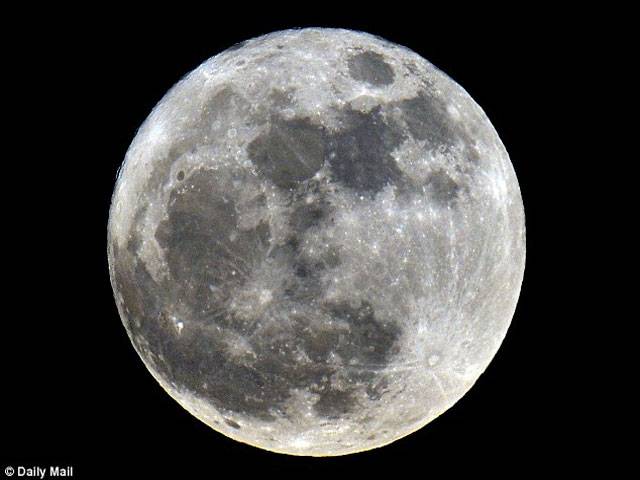Daily Mail
Bern-People have more weird and wonderful dreams around the time of the full moon, a British study found. The content of our dreams doesn’t vary with the seasons or with the days of the week, it showed.
But in the week or so surrounding a full moon, they are decidedly more ‘weird and bizarre’. Psychologist Richard Wiseman made the surprise discovery as he analysed the experiences of 1,000 volunteers who were played sounds as they slept.
He said: ‘For instance, someone might dream that they are flying on a dragon, then get off the dragon and go and have a cup of coffee with George Clooney. Some people dreamt they were superheroes. ‘They thought they were Batman or Superman, fighting crime. Whereas most dreams were very pedestrian, things like being in the office all day, typing.’
The findings build on Swiss research last year which found we take longer to fall asleep, sleep for 20 minutes less and sleep less soundly at full moon. Production of the sleep-inducing hormone melatonin is also altered. Professor Wiseman believes that this may disturb our dreams. Another, stranger explanation is that we evolved to be sensitive to the moon’s rhythms.
According to this theory, sleeping lightly at the full moon would have made us more alert to predators, who might take advantage of the stronger moonlight to go hunting. Our ancestors may also have hunted when the moon was full, with the result that we still find it hard to settle on bright nights. While Professor Wiseman isn’t convinced by the evolutionary explanation, he does acknowledge that the moon seems to affect our sleep. He suggests those with a partner who is particularly affected make use of the sofa or spare room during a full moon.
He made the ‘completely bizarre’ finding while analysing the dreams of people who listened to sounds as they slept. Half a million people took part using a free mobile phone app that plays a range of noises. The user sets an alarm, and if the phone’s motion sensor detects that they are dreaming in the 40 minutes before the alarm is due to go off, the sounds are played. After the alarm goes off, they are asked to record their dream. We are most likely to remember dreams from just before waking. A study of 1,000 such records showed that hearing birdsong or rustling grass led to dreams about greenery and flowers, while the squawk of seagulls led to thoughts of days at the beach.
Car horns and traffic provoked unsettled dreams. Professor Wiseman, who describes his findings in his book Night School, said having more uplifting dreams has advantages beyond leaping out of bed in a good mood. He said: ‘We have discovered a way of giving people sweet dreams, and this may also form the basis for a new type of therapy to help those suffering from certain psychological problems, such as depression.’
People who are depressed dream more than others, probably because their brain is using the downtime to work through their concerns.
The hope is that better dreams will make it easier for them to rationalise their worries and so improve their health.
Saturday, April 20, 2024
You’re likely to have weird dreams when there’s a full moon

Caption: You’re likely to have weird dreams when there’s a full moon
Pak economy improving, funds will be provided on request: IMF
9:57 PM | April 19, 2024
Minister advocates for IT growth with public-private collaboration
9:57 PM | April 19, 2024
Judges' letter: IHC seeks suggestions from all judges
9:55 PM | April 19, 2024
Formula 1 returns to China for Round 5
9:05 PM | April 19, 2024
Germany head coach Julian Nagelsmann extends contract till 2026 World Cup
9:00 PM | April 19, 2024
A Tense Neighbourhood
April 19, 2024
Dubai Underwater
April 19, 2024
X Debate Continues
April 19, 2024
Hepatitis Challenge
April 18, 2024
IMF Predictions
April 18, 2024
Kite tragedy
April 19, 2024
Discipline dilemma
April 19, 2024
Urgent plea
April 19, 2024
Justice denied
April 18, 2024
AI dilemmas unveiled
April 18, 2024
ePaper - Nawaiwaqt
Advertisement
Nawaiwaqt Group | Copyright © 2024





